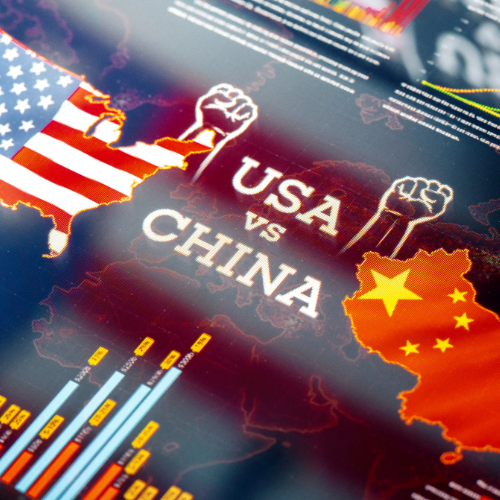Tensions between the United States and China have taken a sharp new turn. Four San Diego-based defense companies—Kratos Defense, Cubic Corporation, Firestorm Labs, and Source Intelligence—have been hit with economic sanctions by the Chinese government. These sanctions are part of an intensifying trade dispute that began after President Donald Trump imposed a sweeping 34% tariff on all Chinese imports, effective April 10. China responded with its own 34% tariff on American goods. But this time, China didn’t stop at tariffs—it took aim directly at specific American companies, particularly those involved in defense and aerospace technology.
This isn’t the first time China has used sanctions to push back against U.S. defense firms. Last year, it placed restrictions on major American defense contractors like Lockheed Martin and General Dynamics. The inclusion of smaller, regional firms now shows that China is widening its efforts, moving beyond national giants to include mid-sized companies that play key roles in U.S. military and security operations.
What the Sanctions Do to These Companies
China’s sanctions involve two powerful tools: the Export Control List and the Unreliable Entities List. These are not just symbolic moves—they come with serious business consequences.
These businesses have been placed on China’s Export Control List, which restricts access to Chinese products classified as “dual-use.” These are items that can serve both civilian and military purposes. Being included on this list means both companies face limitations in sourcing certain technologies or components from Chinese suppliers.
Aggressive Response: China Imposes 34% Retaliatory Tariff on US Products
Cubic, located in the Kearny Mesa area of San Diego, develops advanced systems used in military training and smart transportation. Source Intelligence, based in La Jolla, creates software that helps companies manage their supply chains, with many clients in the aerospace and defense sectors. The sanctions could impact their ability to maintain operations that depend on global supply networks.
In a separate action, Kratos Defense and Firestorm Labs have been added to China’s Unreliable Entities List. This list imposes even stricter penalties. Companies listed are barred from doing business with Chinese entities, banned from making new investments in China, and may have any Chinese-based assets frozen.
Kratos, through its Kratos Unmanned Aerial Systems division, builds drone technology used by the U.S. military. Firestorm Labs, also based in San Diego, develops cutting-edge military tech. The inclusion of these two firms effectively shuts them out of the Chinese market entirely.
According to a statement from Kratos, the sanctions will have no impact on its operations. The company noted that it does no business with China and remains focused on supporting U.S. national security and its allies. The other three firms—Cubic, Firestorm Labs, and Source Intelligence—did not respond to media inquiries regarding the sanctions.
A History of Retaliation and Warnings
This latest move by China did not come without warning. In December, Chinese officials announced a list of American companies that were under consideration for sanctions. That list included Kratos, Firestorm Labs, and another San Diego-based firm, Shield AI, which develops autonomous aircraft technology for military use. These companies were flagged in response to the U.S. government’s continued arms sales to Taiwan, a region China considers part of its own territory. China has repeatedly said these sales interfere with its national sovereignty.
China’s 54% Tariff & EU’s 20%: Trump’s Reciprocal Tariffs Hit Hard
Earlier in the year, another San Diego company, Illumina, which specializes in gene sequencing, was added to the Unreliable Entities List. While Illumina is not a defense contractor, its presence on the list signaled that China was willing to expand its sanctions to include companies outside the weapons and aerospace industries if it believed they threatened its national interests.
The inclusion of Lockheed Martin and General Dynamics last year marked the beginning of this tougher stance. But with the addition of smaller, regional firms like those in San Diego, China is showing it intends to cast a wider net. The focus appears to be on any company connected to the U.S. military, especially those seen as playing a role in arms sales to Taiwan.
By sanctioning both well-known defense giants and lesser-known but strategically important firms, China is signaling that it sees no distinction between large and small players in the defense supply chain. All are subject to retaliation when national security is involved. For the San Diego companies now under these restrictions, the message is clear: the trade conflict has moved beyond tariffs and into a more targeted and personal phase.


